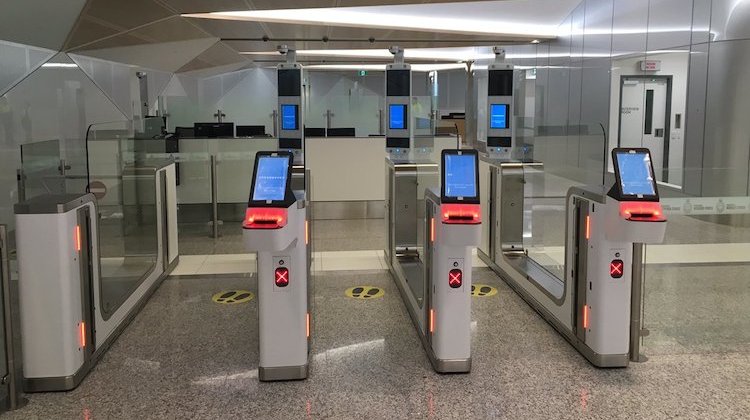
Passengers flying from Indonesia will now have to clean their shoes and wipe their feet on sanitised mats to prevent an outbreak of foot-and-mouth disease (FMD).
Federal Agriculture Minister Murray Watt said the ‘biosecurity response zones’ would be set up at airport customs within days, with mats beginning to arrive on Friday.
It follows foot-and-mouth disease first being confirmed in livestock in Bali on 5 July. The contagious infection, which poses little risk to humans, is best known for causing six million animals to be culled in the UK two decades ago, devastating its export industry.
“Earlier this week, I directed my department to investigate what further control measures were available at our international airports,” Minister Watt said.
“I had been concerned about some rare reports that some return travellers were not doing the right thing when returning from Indonesia.
“These zones strengthen and widen the powers of biosecurity officers to direct passengers to use foot mats and other biosecurity control measures such as the cleaning of shoes.”
Watt added the government had “wasted no time” in getting on top of this and had been consistently ramping up measures at airports and mail centres.
“We have already announced a $14 million assistance package to reduce the risk of FMD spreading from Bali to Australia, which included increased detection and protection here in Australia and a million vaccines for the Indonesian cattle industry.”
Foot-and-mouth disease causes lesions and lameness in livestock, and the federal government has previously predicted an outbreak could cost the local industry $80 billion.
Already, Nationals leader David Littleproud has called for a ban on bringing food from Indonesia, while National Farmers’ Federation president Fiona Simson has demanded all returning passengers be screened for the virus.
Jetstar became the first Australian airline to return to Bali in March after a two-year pause caused by COVID-19.
The increased restrictions will likely reduce demand for the holiday island, while also potentially adding to queues already seen at airports.
Australian Aviation reported just this week how airlines recorded their worst-ever month for flight delays and cancellations in June, surpassing the previous record low result set just two months earlier during the Easter holidays in April.
The severe disruption was seen throughout the month as the industry continued to battle post-pandemic staff shortages. June’s issues were further fuelled by a mid-year school holiday travel surge and severe weather events, including flash flooding throughout NSW.
According to new data released by the Bureau of Infrastructure and Transport Research Economics (BITRE), just 63.0 per cent of all flights arrived on time in June, while 61.9 per cent departed on schedule.
Meanwhile, a total of 5.8 per cent of all flights were cancelled over the month, nearly three times more than the long-term cancellation average.
BITRE said these figures mark “the worst” the industry has seen since records began in November 2003. It comes just months after this record was previously set in April, as the airlines battled staff shortages amid the Easter and ANZAC Day long weekends.















